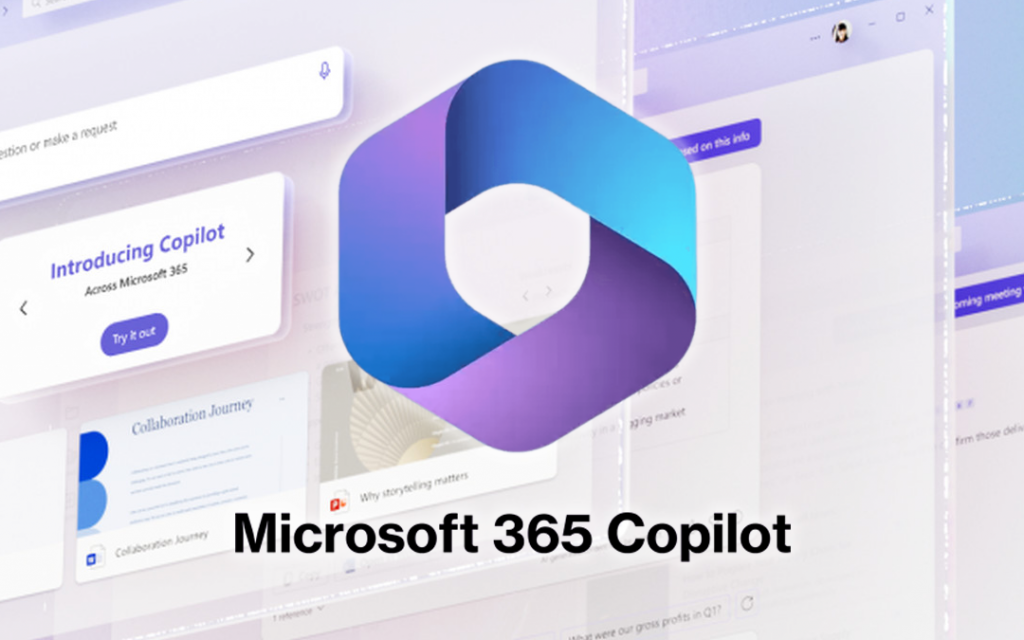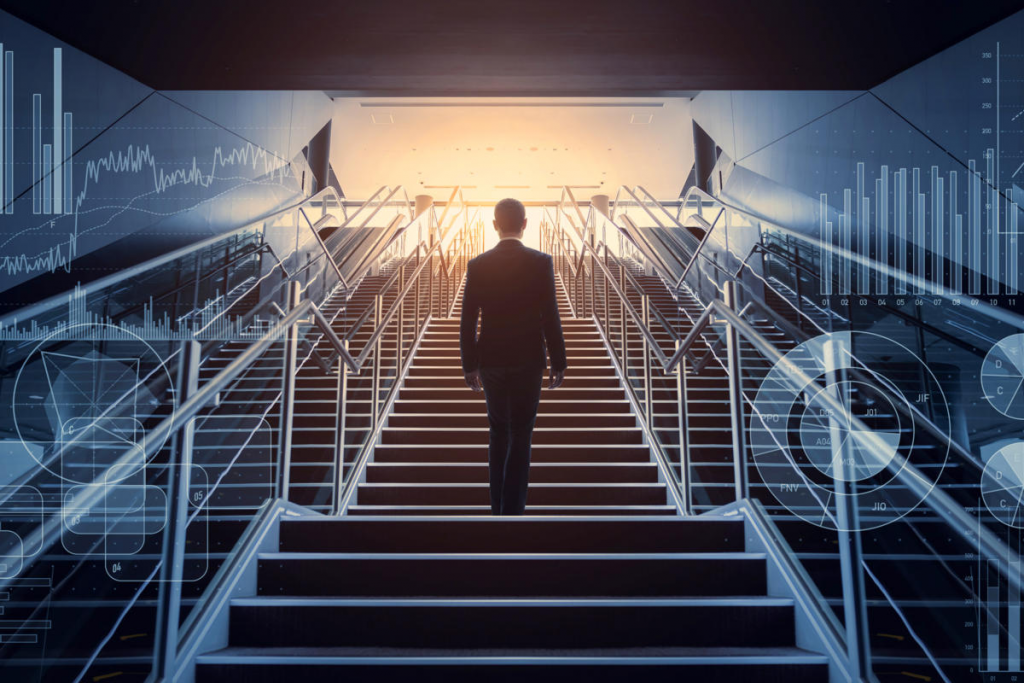Physical Address
60 Ekwema Cres, Layout 460281, Imo
Physical Address
60 Ekwema Cres, Layout 460281, Imo

There is a general saying that nothing that is good is entirely good when examined holistically; such is the case of Artificial Intelligence (AI) and the Tech Industry.
No one can deny the immense relief everyone has experienced since the advent of technological advancements. From the organizational level down to the very fabric of households, technology has permeated almost every aspect of our lives.
This has led to more productivity and ease, making life worthwhile for humans.
Artificial Intelligence (AI) has ushered in a new order in healthcare operations. Repetitive tasks can now be automated, thanks to AI.
How about smart devices? Remote jobs that have increased in the last decade? All of these are courtesy of advancements in technology and Artificial Intelligence (AI).
However, concerns have risen over the potential displacement of human labour by Artificial Intelligence (AI). The ongoing development of more advanced technology and artificially intelligent machines further supports these worries.
For instance, the novel ChatGPT could craft an article that would take a regular writer hours to write in just a few seconds; all that is needed is the right prompt. Concerns continue to soar; humans are becoming insecure.
Innovations that are meant to complement our existence are starting to seem like a very formidable threat to the essence of our existence.
Are you one of those asking and pondering if Artificial Intelligence (AI) would be humans’ greatest undoing? Or rather, in the league of those feeling insecure because of the threat AI poses to their jobs?
Rest assured, you are not alone, thanks to the tech industry. Several people are toeing the line alongside you, and that is why this article hopes to shed light on the 15 jobs that AI will not replace in the next ten years (2024–2034).
As we stand on the cusp of the third decade of the 21st century, the discourse surrounding the integration of Artificial Intelligence (AI) into our professional realms has reached a crescendo.
From Microsoft’s foray into AI-driven virtual assistants to Alphabet Inc.’s initiatives optimizing urban infrastructure through AI, the influence of technology on the job market is undeniable.
Also read: Microsoft Enhances Security for Windows AI Software After Public Concern
In this dynamic landscape, a debate has emerged regarding the extent to which AI might replace human roles. The conversation is not merely speculative; it is grounded in tangible developments and projections.
PwC’s Global Artificial Intelligence Study, projecting a $15.7 trillion contribution to the global economy by 2030, sets the stage for discussions about the transformative power of AI.
AI’s impact on the job market is a multifaceted phenomenon, with the potential to both displace and create employment opportunities.
Microsoft’s recent Work Trend Index report underscores the urgency for upskilling in the face of AI advancements. It reveals that 82% of business leaders believe employees must adapt to the AI age.
Also, the study was based on interviews with 31,000 individuals. And it highlights the growing importance of AI skills for staying relevant in the workforce.
As we delve into the trends shaping the job market, it becomes apparent that AI-driven automation is not a homogeneous force.
While it poses a threat to certain roles, it also fosters the creation of new opportunities. McKinsey Global Institute’s study projecting the potential automation of up to 30% of work hours in the U.S. by 2030 reveals the nuanced nature of AI’s influence.
In the subsequent sections, we will explore specific industries and roles that, despite the pervasive growth of AI, remain resilient to automation.
These are the jobs that not only withstand the impact of technology but thrive in its presence.
They embody the coexistence of human skills and technological advancement. Join us on this exploration of the industries where your job may indeed be safe from the encroachment of AI.
Also read: How Digital Marketing can Help with Business Growth in 2024
In the annals of technological advancement, the integration of Artificial Intelligence (AI) into various professions has been a transformative journey.
Understanding the historical context is crucial to appreciating the nuanced impact it has had on different sectors.
The emergence of AI can be traced back to the mid-20th century, marked by the birth of electronic computers.
However, it wasn’t until recent decades that AI evolved into a force capable of influencing diverse professional landscapes. The historical trajectory showcases the gradual incorporation of AI into sectors ranging from healthcare to manufacturing.
The integration of AI into the workforce has not been without its concerns. As technology advanced, so did apprehensions about the potential displacement of jobs.
The fear that automation and AI could render certain professions obsolete has been a recurrent theme in discussions about the future of work.
McKinsey Global Institute’s projection of potential job transitions in the U.S. by 2030 adds empirical weight to these concerns.
The evolution of AI is not a singular narrative; it’s a tapestry woven with threads of innovation, adaptation, and ongoing debate about the interplay between technology and employment.
Join us on this exploration of AI’s impact and discover the professions that are resistant to its encroachment.
The infusion of Artificial Intelligence (AI) into the fabric of our global economy is not merely a technological shift; it is a seismic force reshaping the very foundations of industries and markets.
PricewaterhouseCoopers’s Global Artificial Intelligence Study offers profound insights into the potential impact of AI, projecting a future where its contributions are instrumental in shaping the economic landscape.

PwC’s in-depth analysis, encapsulated in the Global Artificial Intelligence Study, is insightful in understanding AI’s potential impact.
The study’s projections are nothing short of staggering. It forecasts a substantial contribution of $15.7 trillion to the global economy by 2030.
This figure serves as a testament to the transformative power AI wields in driving economic growth and innovation.
The envisioned contributions of AI to the global economy by 2030 extend far beyond mere monetary figures. Beyond the $15.7 trillion projection lies a narrative of improved labor productivity, enhanced product offerings, and a 26% boost in GDP for local economies.
The economic gains, driven by AI’s prowess, are poised to stimulate consumer demand. This will in turn foster a landscape where personalization and efficiency coalesce.
Also read: Does AI Help or Hurt the Tech Sector
While the global projections are indeed remarkable, it’s crucial to recognize the regional variations that shape AI’s economic impact.
China and North America emerge as vanguards, expected to lead with a staggering $10.7 trillion contribution, representing nearly 70% of the global impact.
This regional dominance not only underscores the economic potential but also raises considerations about the distribution and accessibility of AI benefits across the globe.
In the next section, we will explore two tech giants that are making waves in the AI industry.
In the ever-changing field of Artificial Intelligence, two tech titans, Microsoft and Alphabet, are notable for their indispensable contributions.
Their respective initiatives underscore the transformative power of AI in shaping the future of technology and business.
Microsoft, a stalwart in the tech industry, has been relentless in its pursuit of AI advancements. From strategic investments in OpenAI to the development of cutting-edge AI applications, the company is deeply immersed in the AI ecosystem.
Microsoft’s commitment to AI skills acquisition, as highlighted in the Work Trend Index report, emphasizes the urgency for employees to upskill in the face of AI’s rapid integration into the workforce.

A beacon of Microsoft’s AI prowess is the introduction of Microsoft 365 Copilot, a revolutionary AI assistant poised to redefine workplace dynamics.
This AI assistant is designed to summarize meetings in Microsoft Teams, create documents and presentations using technology akin to ChatGPT.
While the innovation promises heightened productivity, concerns about potential job disruptions and over-reliance on AI tools linger.
On the other end of the spectrum, Alphabet Inc., Google’s parent company, has etched its mark in the AI realm with innovations like the Search Generative Experience (SGE).
This development allows users to generate images and written drafts from text prompts. That is a landmark improvement in content creation.
While Alphabet emphasizes responsible AI use, the introduction of AI-driven features raises questions about the potential disruption and transformation of creative and content-related professions.

As we explore the field of AI through the lens of Microsoft and Alphabet, it becomes evident that these industry giants are not merely embracing AI. They are actively shaping its trajectory.
However, if these industries continue at their innovative pace, what are the potential effects on human labour? Moreover, are there any benefits? We would explore that in the subsequent sections.
Artificial Intelligence (AI) extends its transformative touch far beyond the realm of employment. It delves into other sectors, such as infrastructure optimization and environmental sustainability.
A notable example is Alphabet Inc.’s pioneering use of AI to optimize traffic lights. This can be seen as going beyond job disruption and having a positive impact on urban life and resource utilization.
In a bid to enhance urban mobility, Alphabet Inc. has harnessed the capabilities of AI to optimize traffic lights in multiple cities. This innovative approach aims to reduce wait times and emissions by orchestrating a synchronized dance of traffic signals.
Preliminary results from this AI-driven endeavor indicate a substantial reduction in stops by up to 30%. It also indicates a noteworthy 10% decrease in emissions for an impressive 30 million vehicles on a monthly basis.
The initial outcomes of Alphabet’s foray into AI-driven traffic light optimization showcase tangible benefits for both commuters and the environment. The substantial decrease in stops translates to enhanced traffic flow.
That has further minimized the time commuters spend waiting at intersections. Simultaneously, the noteworthy reduction in emissions contributes to a more sustainable and eco-friendly urban environment.
However, are these benefits enough to minimize the effect of the potential job displacements? Let’s examine McKinsey’s data on the subject.
Insights from the McKinsey Global Institute provide a comprehensive examination of the anticipated job displacement dynamics by the year 2030.
The study sheds light on the transformative impact of AI across various sectors. It also offers projections and examples that illuminate the evolving employment landscape.
With a focus on the year 2030, McKinsey Global Institute’s extensive study delves into the potential disruption AI might bring to the workforce, particularly in office support, customer service, and food services.
By examining key indicators and trends, McKinsey seeks to quantify the extent of job displacement and the consequent shifts in occupational landscapes.
McKinsey’s insights and projections touch more on the impact of AI on specific sectors crucial to the global workforce. As AI technologies continue to advance, the study suggests that up to 30% of work hours in the United States may be subject to automation by 2030.
Among the sectors most significantly affected are office support, customer service, and food services. These projections raise important considerations for industries that heavily rely on routine tasks.
It also emphasizes the need for adaptive strategies to navigate the changing employment terrain.
The McKinsey study draws attention to the present reality of AI’s influence. Furthermore, it highlights specific jobs that have already succumbed to automation.
Some roles in customer service and data entry are among the casualties, as AI systems demonstrate efficiency in handling routine tasks traditionally performed by human workers.
Additionally, the advent of self-checkout systems in retail stores has led to a reduction in cashier roles, further exemplifying AI’s transformative impact on employment.
Without further ado, let’s delve into the topic of the day: Top 15 Jobs AI Will Not Replace
See also: CES 2024: a Rare Glimpse into Our AI-powered Future
In the landscape of employment, certain professions stand resilient against the encroachment of Artificial Intelligence (AI).
As we delve into the top 15 jobs that AI is unlikely to replace, we uncover the unique qualities and nuances that make these roles distinctly human-centric.
Let’s explore the following professions that defy the pervasive reach of AI.

Therapists and counselors navigate the intricate realms of human emotions. Also, they offer support and guidance in times of need.
The nuanced understanding of emotional intricacies, empathy, and personalized care remains a quintessentially human attribute.
That is why these roles are beyond the scope of current AI capabilities.

AI grapples with the complexities of human societies. That is why roles in social work and community outreach are uniquely resistant to automation.
Tackling multifaceted challenges, these professionals rely on a deep understanding of cultural contexts, intricate social dynamics, and compassionate decision-making.
These outlined aspects elude the current capabilities of artificial systems.

The realm of music is a testament to human creativity and emotional expression. Musicians, with their ability to compose, interpret, and evoke emotions through art, showcase a form of creativity that surpasses the analytical capabilities of AI.
The nuanced interplay of melody, emotion, and improvisation places musicians securely in the domain of the irreplaceable.

When it comes to strategic decision-making, high-level strategists and analysts bring a unique blend of analytical prowess and intuitive understanding.
While AI excels in data analysis, these roles often demand a level of intuition, creativity, and contextual awareness. These are human attributes. Hence, these roles are less susceptible to automation.

The pursuit of scientific discovery and technological advancement rests heavily on the shoulders of research scientists and engineers.
Their roles involve not only intricate problem-solving but also the ability to conceive groundbreaking ideas. Moreover, they innovate, and adapt to unforeseen challenges. These are attributes that currently elude the capabilities of AI.

The world of performing arts, whether in theater, dance, or live entertainment, thrives on the authenticity and spontaneity of human expression.
The ability to captivate an audience, adapt to their reactions, and infuse a unique energy into each performance is a testament to the irreplaceable human touch in the world of artistic expression.

Judges play a pivotal role in our legal systems. Notably, their roles require a nuanced understanding of the law, societal norms, and a deep commitment to justice.
The complexity of legal cases and the need for ethical decision-making underscore the challenges that AI faces.
These show the current limitations AI faces in replicating the discernment and wisdom integral to the judicial role. Hence, judges are still here to stay, at least for now.

Effective leadership involves more than just strategic decision-making; it requires emotional intelligence and the ability to motivate and inspire teams.
It also requires a deep understanding of human dynamics. While AI can analyze data and offer insights, the intricate interplay of leadership demands a level of empathy and adaptability.
This currently remains distinctly human’s. Hence, leadership and managerial roles remain out of bounds for AI.

Crafting a vibrant and inclusive workplace culture involves a deep understanding of human potential, aspirations, and interpersonal dynamics.
Human Resources (HR) professionals and talent acquisition specialists bring a personal touch to recruitment, employee development, and conflict resolution .
These are aspects that are challenging for AI to replicate. For that reason, their jobs are immune to AI’s jobs displacement.

In the field of customer service and support, the ability to empathize, understand nuanced concerns, and provide tailored solutions is paramount—capabilities that are absent with AI.
This is not to say these roles are totally AI-resistant, though. In fact, there have been indications that suggest that these roles might become more dominated by AI in the near future, which we can now observe in some organizations.
However, the emotional intelligence required to navigate complex issues and address diverse customer needs is a characteristic of humans. This, to some degree, positions these roles as AI-resistant.
Hence, as it stands, we will still have human customer service in the years to come.

The field of healthcare, particularly surgery, demands an extraordinary blend of precision and empathy.
Surgeons, along with various healthcare professionals, navigate the intricate landscape of human health, making split-second decisions and demonstrating a level of compassionate care that transcends the current capabilities of AI.
This is the reason why AI cannot replace surgeons and other medical professionals. AI would rather complement them in their operations.

Athletes epitomize the fusion of physical prowess and mental resilience.
Whether on the field, track, or court, their ability to strategize, adapt to unpredictable situations, and push the limits of human potential remains beyond the reach of AI.
The emotional and psychological dimensions of sports make these roles distinctly human. As a result, athletes will be here many years to come.

Entrepreneurship is an inherently human endeavor, driven by creativity, risk-taking, and an unwavering vision for the future.
The ability to identify opportunities, innovate, and navigate the complexities of business landscapes involves a dynamic interplay of skills that currently elude AI’s grasp.
So, entrepreneurship is a role that isn’t susceptible to AI’s encroachment.

The realm of politics and governance requires a profound understanding of societal dynamics, ethical decision-making, and effective communication.
Politicians navigate complex issues, represent diverse constituencies, and make decisions that shape the course of nations, relying on a distinctly human capacity for diplomacy and strategic thinking.
Whether you like politicians or not, their roles remain immune to AI’s encroachment.

In the critical domain of mental health, counselors provide support that extends beyond scripted responses.
The nuanced nature of human emotions and the need for empathetic understanding make mental health counseling an intricate interplay of expertise and compassion, rendering it resistant to automation.
As we conclude our exploration, these fifteen roles collectively emphasize the enduring value of human skills, reinforcing the notion that, despite technological advancements, certain professions remain deeply rooted in the irreplaceable essence of human capabilities.
Also read: 7 Hot Tech Jobs in Global Demand 2024
As we delve into the complexities surrounding Artificial Intelligence (AI) and its impact on the job market, it becomes imperative to consider various facets that go beyond the binary narrative of job displacement.
This section aims to explore nuanced considerations that play a pivotal role in shaping the future of work.
One of the distinguishing features of many occupations is the profound element of human connection.
Roles that involve intricate emotional intelligence, nuanced communication, and empathetic understanding are less susceptible to the encroachment of AI.
As technology evolves, the value of distinctly human qualities, such as compassion and interpersonal skills, becomes increasingly apparent.
We scrutinize the landscape of professions where human interaction is not just a requirement but a defining aspect, thereby safeguarding these roles from automation.
As we draw the curtain on the discourse surrounding the impact of Artificial Intelligence (AI) on the job market, it is imperative to reflect on the intricate interplay between technological advancement and human employment.
This conclusion encapsulates the key takeaways, uncertainties, and potential pathways that lie ahead.
In the landscape of evolving technologies, it is crucial to recognize and appreciate the irreplaceable roles that humans play in various professions.
The nuances of creativity, emotional intelligence, and complex problem-solving set the stage for the acknowledgment of jobs that stand resilient in the face of automation.
By understanding and valuing these roles, we foster a collective consciousness that emphasizes the complementary nature of AI and human capabilities.
While we navigate the era of AI, it is essential to acknowledge the uncertainties that shroud the future of the job market. The dynamic nature of technological advancements introduces a level of unpredictability.
Therefore, there is a need to be duly prepared for potential shifts, adaptations, and challenges that may arise. Also, emphasis is placed on the need for a proactive and flexible approach to prepare the workforce for an evolving employment landscape.
Amidst the challenges posed by AI, there emerges a realm of opportunities centered around upskilling and embracing AI-related careers.
This article has shed some light on the initiatives, programs, and industries that harness the power of AI for human benefit.
By fostering a culture of continuous learning and adaptability, individuals can position themselves to not only withstand the tides of change but also to thrive in collaboration with AI technologies.
In essence, the concluding remarks underscore the significance of a balanced approach.
The coexistence of AI assistance and human employment is not a dichotomy but a synergy that, when navigated thoughtfully, holds the promise of a future where both technology and humanity flourish harmoniously.
Moreover, there is no better time to adopt an open mind than a time like this, so what was meant to benefit wouldn’t turn into a resisting force.
As we stand on the precipice of unprecedented transformations, the key lies in embracing change with a collective determination to shape a future where AI enriches, rather than replaces, the tapestry of human endeavor.
We hope that you find this piece useful. For timely access to a wealth of other interesting information, follow us on X or Twitter, @SiliconAfriTech.